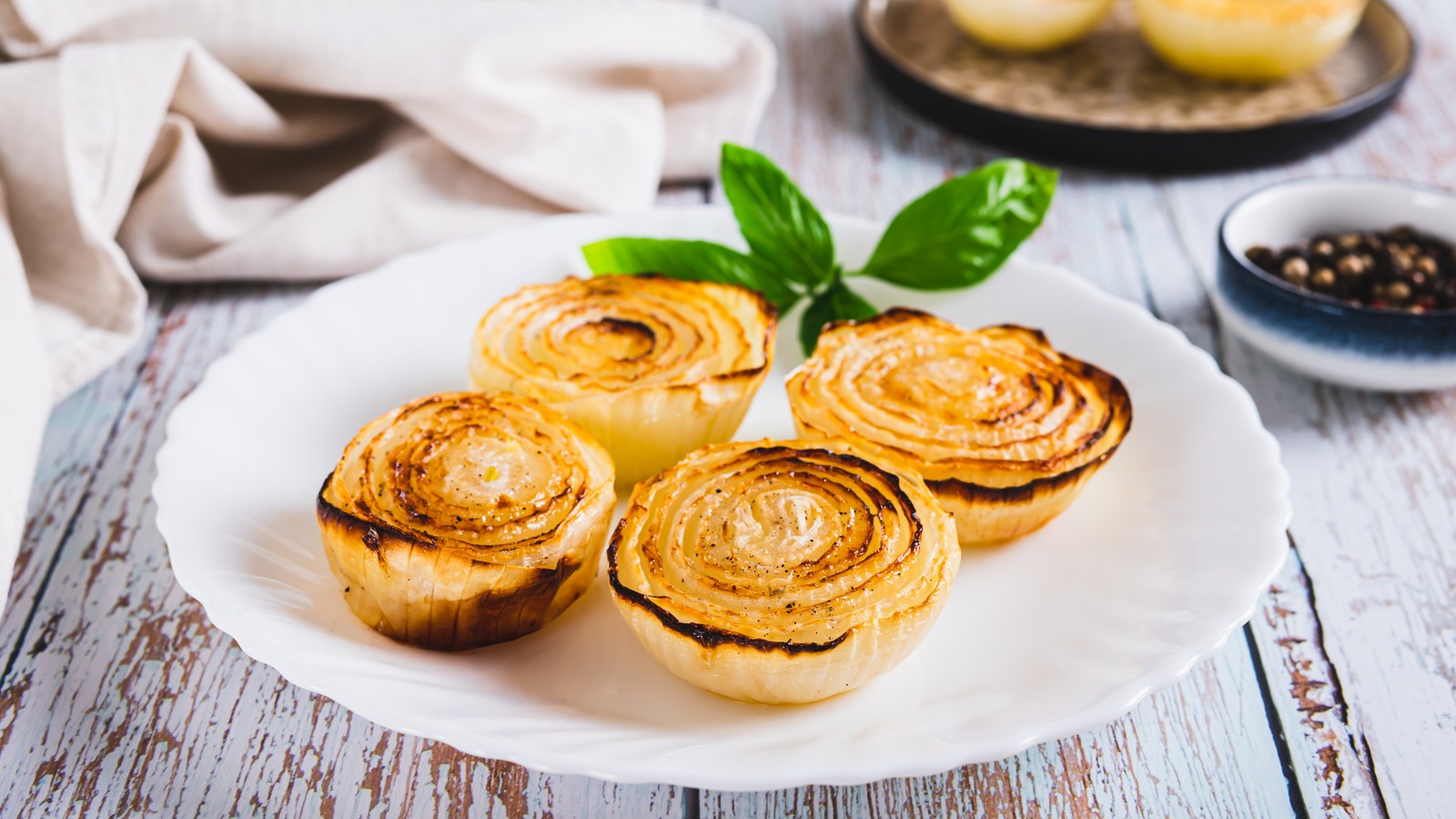
"According to vegan chef Shenarri Freeman, whether or not you roast onions with the skin on depends on how you'll be using the ingredient. "I would do skin on if I'm trying to make a stock or a broth or something, and I'm going to strain it out," she says. The decreased water content and concentrated flavor that stems from high temperatures elevate the onions, but when whipping up a broth, it's important to preserve as much of that pungent liquid as possible."
""When I'm making broth, I'm trying to extract those oils and nutrients that come with it ... I definitely get that when I'm roasting with the skins on for broths and stocks," Freeman explains. Not only do the skins help to maintain the moisture of the onion, but they also make a great broth ingredient. They have a mildly bitter taste that can lend an earthiness and a golden or purple hue to your vegetable stock."
Roasting onions concentrates flavor by reducing water content and elevating sweetness and pungency at high temperatures. Keeping skins on while roasting preserves moisture and helps extract oils and nutrients into broths and stocks, while contributing mild bitterness and a golden or purple hue. Removing the papery skins is appropriate when serving onions immediately, yielding delicious roasted flesh but requiring closer monitoring to prevent burning. Lower roast temperatures (around 375°F instead of 425°F) and coating with oil help protect skinless onions and ensure even browning and tenderness.
Read at Tasting Table
Unable to calculate read time
Collection
[
|
...
]